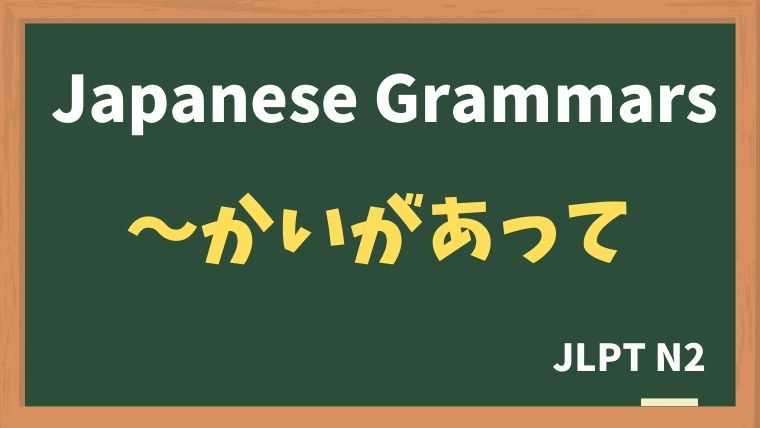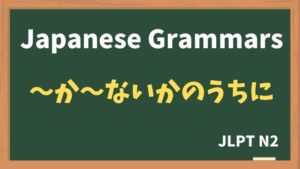
Explanation:〜かいがあって / 〜かいもなく
fa-check-circleMeaning
"〜した効果があって / 〜のおかげで / 〜の価値があって"
Used to reflect the result of efforts or actions. "〜かいがあって" is used when an action or effort is rewarded with a positive outcome, meaning "the effort was worth it." On the other hand, "〜かいもなく" is used when the effort does not lead to the desired outcome, meaning "despite the effort, it was in vain."
fa-check-circleForm
V(dictionary / ta form) + かい(が)あって
V(masu form)ます + がい(が)ある
fa-check-circlePoints
- Positive Result with Effort (〜かいがあって): This expression is used to highlight that the effort put into something was successful or paid off.
- Effort in Vain (〜かいもなく): This is used to emphasize that, despite making an effort, the expected results were not achieved.
- Used with Actions: Both expressions are attached to verbs that indicate actions or efforts made.
fa-check-circleJLPT Level
N2
fa-check-circleNote
negative form:〜かいもなく
Sample sentenes
努力したかいがあって、1回でJLPT N2に合格することができた。
Thanks to my hard work, I was able to pass the JLPT N2 on my first try.
毎日練習したかいがあって、試合で勝つことができた。
Thanks to practicing every day, I was able to win the match.
朝早くから店の前に並んだかいがあって、一番最初に新しいiPhoneを購入することができた。
Thanks to lining up in front of the store early in the morning, I was able to buy the new iPhone first.
毎日シャドーイングしたかいがあって、日本語の発音が良くなった。
Thanks to shadowing every day, my Japanese pronunciation has improved.
遠くから時間とお金をかけて来たかいもなく、行きたかったレストランは閉まっていた。
Despite spending time and money to come from afar, the restaurant I wanted to go to was closed.
父は手術のかいもなく、亡くなってしまった。
Despite the surgery, my father passed away.
Vocabulary
| Japanese |
English | |
| 購入する | こうにゅうする | to purchase |
| 手術 | しゅじゅつ | operation |
| 亡くなる | なくなる | to paas away |






